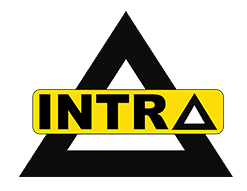7. Systematic review protocol to determine the most effective pharmacological and non-pharmacological interventions for the management of acute methamphetamine toxicity
CEUs: 2 Clinical
Average read time: 25 to 30 minutes
Short Summary of the Article:
The article titled “Systematic Review Protocol to Determine the Most Effective Pharmacological and Non-Pharmacological Interventions for the Management of Acute Methamphetamine Toxicity” outlines a systematic review protocol that seeks to assess both pharmacological and non-pharmacological strategies for managing acute methamphetamine intoxication. The study is focused on identifying interventions for methamphetamine-induced agitation and violence in emergency department settings. The primary objective is to review experimental studies that assess the effectiveness of these interventions in reducing agitation, violence, and psychosis, with a focus on the time to achieve sedation and de-escalation. Secondary outcomes include evaluating the length of stay in the emergency department, mortality, and provider satisfaction.
Learning Outcomes
Upon completion of this activity, you should have an understanding of:
- Pharmacological and Non-Pharmacological Interventions for Methamphetamine Intoxication: The effectiveness of interventions such as benzodiazepines, antipsychotics, and verbal de-escalation in managing violent behavior in methamphetamine-intoxicated patients.
- Clinical Application in Emergency Departments: Insights into how these interventions impact clinical outcomes, including de-escalation times, patient safety, and emergency department stays.
- Importance of Standardized Protocols: Recognition of the variability in approaches to methamphetamine intoxication and the need for standardized evidence-based protocols to improve patient and staff safety.
0 of 15 Questions completed Questions: You have already completed the quiz before. Hence you can not start it again.
Quiz is loading... You must sign in or sign up to start the quiz. You must first complete the following:
0 of 15 Questions answered correctly
Your time:
Time has elapsed
You have reached 0 of 0 point(s), (0)
Earned Point(s): 0 of 0, (0) What is the primary objective of the systematic review in the article? pg 1 Which of the following is considered a pharmacological intervention for methamphetamine intoxication? pg 3 True or False: Verbal de-escalation is a non-pharmacological strategy mentioned in the study. pg 3 Which of the following is a secondary objective of the systematic review? pg 1 True or False: Methamphetamine use is associated with significant agitation and psychosis. pg 1 Which tool will be used to assess the quality of evidence in the systematic review? pg 2 Which of the following interventions is NOT part of the study’s focus for managing methamphetamine intoxication? pg 3 What does the study identify as a key challenge in managing methamphetamine intoxication? pg 1 Which method is primarily used to assess agitation in methamphetamine-intoxicated patients? pg 3 True or False: The study aims to develop a new methamphetamine detoxification protocol. pg 1 What is the expected completion date for the systematic review? pg 2 Which of the following stakeholders were involved in the development of the review protocol? pg 3 What is a limitation identified by the authors regarding their study? pg 4 Which measure is used to assess the quality of non-interventional studies in the review? pg 3 What type of review is outlined in the article? pg 1
Quiz Summary
Information
Results
Results
0 Essay(s) Pending (Possible Point(s): 0)
Categories
1. Question
Hint
2. Question
Hint
3. Question
Hint
4. Question
Hint
5. Question
Hint
6. Question
Hint
7. Question
Hint
8. Question
Hint
9. Question
Hint
10. Question
Hint
11. Question
Hint
12. Question
Hint
13. Question
Hint
14. Question
Hint
15. Question
Hint
(Max of 3 Attempts)


